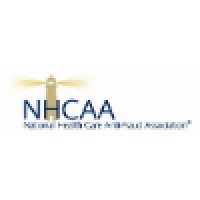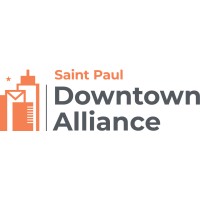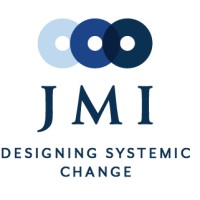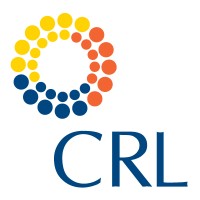Company Details
national-health-care-anti-fraud-association
25
2,701
921
nhcaa.org
0
NAT_1515676
In-progress

National Health Care Anti-Fraud Association Company CyberSecurity Posture
nhcaa.orgFounded in 1985 by several private health insurers and federal and state government officials, the National Health Care Anti-Fraud Association is the leading national organization focused exclusively on the fight against health care fraud. We are a private-public partnership — our members comprise more than 100 private health insurers and those public-sector law enforcement and regulatory agencies having jurisdiction over health care fraud committed against both private payers and public programs. Established in 2000, The NHCAA Institute for Health Care Fraud Prevention is a separately incorporated, tax-exempt educational foundation that provides education and training to private- and public-sector health care anti-fraud personnel. Mission Statement: To protect and serve the public interest by increasing awareness and improving the detection, investigation, civil and criminal prosecution and prevention of health care fraud. Join the fight against health care fraud! Please visit http://www.nhcaa.org or call 202.659.5955 for more information about membership.
Company Details
national-health-care-anti-fraud-association
25
2,701
921
nhcaa.org
0
NAT_1515676
In-progress
Between 700 and 749

 NHCAA Global Score (TPRM)
NHCAA Global Score (TPRM)XXXX



No incidents recorded for National Health Care Anti-Fraud Association in 2025.
No incidents recorded for National Health Care Anti-Fraud Association in 2025.
No incidents recorded for National Health Care Anti-Fraud Association in 2025.
NHCAA cyber incidents detection timeline including parent company and subsidiaries

Founded in 1985 by several private health insurers and federal and state government officials, the National Health Care Anti-Fraud Association is the leading national organization focused exclusively on the fight against health care fraud. We are a private-public partnership — our members comprise more than 100 private health insurers and those public-sector law enforcement and regulatory agencies having jurisdiction over health care fraud committed against both private payers and public programs. Established in 2000, The NHCAA Institute for Health Care Fraud Prevention is a separately incorporated, tax-exempt educational foundation that provides education and training to private- and public-sector health care anti-fraud personnel. Mission Statement: To protect and serve the public interest by increasing awareness and improving the detection, investigation, civil and criminal prosecution and prevention of health care fraud. Join the fight against health care fraud! Please visit http://www.nhcaa.org or call 202.659.5955 for more information about membership.


Mission: Social Planning Toronto challenges inequity in our city through knowledge generation, debate, civic engagement, advocacy, and collaboration to spark social and policy change. Values: We are committed to equity, diversity, inclusion, and anti-racism We respect the rights, knowledge, protoco

The Saint Paul Downtown Alliance is a new organization that represents downtown businesses, nonprofits, government entities, residents, and entrepreneurs to build a strong and vibrant downtown and create a positive downtown experience. The Downtown Alliance is the outcome of a year-long community-b

During its 20 year history, JMI has conducted more than 300 projects designed to improve the administration of justice, nationally and internationally. JMI is guided by three principles—Think, Inspire, Change—that represent a holistic approach to change management and overall justice system improvem

Liberty Institute is Georgian research and advocacy organization that advances natural law and liberty. We aim not only to analyze and comment on public policy but to change it. We provide not just an academic forum for critical discussions and debates but strive to act as catalyst of reforms. Comb

The Australian Institute of Policy and Science (AIPS) is an independent not-for-profit organisation first established in 1932 that aims to bring science, people and policy, community and industry actors closer together to encourage engagement and informed debate on key current issues in Australia an

The Center for Responsible Lending (CRL) is a non-partisan research and policy group working to ensure our nation's consumer finance system promotes and protects homeownership and family wealth. Our focus is on consumer lending: primarily mortgages, payday loans, credit cards, bank overdrafts, and a
.png)
Ghana's banking sector has taken a major step toward strengthening its defences against rapidly escalating cyber threats, as top banking...
A lawsuit filed by Nebraska Attorney General Mike Hilgers over the 2024 Change Healthcare data breach has been allowed to proceed after...
Three years after two Georgia Tech cybersecurity officials filed suit claiming the institution had fabricated scores submitted to the...
Cyber Security Awareness Month is an annual reminder to protect yourself online and secure your devices and accounts from cyber threats.
In 2023, 725 data breaches were reported to OCR and across those breaches, more than 133 million records were exposed or impermissibly disclosed.
The Department of Cybersecurity and High-Tech Crime Prevention has launched a national campaign against online scams.
October is National Cybersecurity Awareness Month—although those in fintech and financial services can be forgiven for feeling as if every...
The False Claims Act (FCA) is the government's principal weapon against fraud. It is a broad and flexible statute that was intended to...
These companies block online threats, assess industry vulnerabilities and increase education and awareness about cybersecurity.

Explore insights on cybersecurity incidents, risk posture, and Rankiteo's assessments.
The official website of National Health Care Anti-Fraud Association is http://www.nhcaa.org.
According to Rankiteo, National Health Care Anti-Fraud Association’s AI-generated cybersecurity score is 743, reflecting their Moderate security posture.
According to Rankiteo, National Health Care Anti-Fraud Association currently holds 0 security badges, indicating that no recognized compliance certifications are currently verified for the organization.
According to Rankiteo, National Health Care Anti-Fraud Association is not certified under SOC 2 Type 1.
According to Rankiteo, National Health Care Anti-Fraud Association does not hold a SOC 2 Type 2 certification.
According to Rankiteo, National Health Care Anti-Fraud Association is not listed as GDPR compliant.
According to Rankiteo, National Health Care Anti-Fraud Association does not currently maintain PCI DSS compliance.
According to Rankiteo, National Health Care Anti-Fraud Association is not compliant with HIPAA regulations.
According to Rankiteo,National Health Care Anti-Fraud Association is not certified under ISO 27001, indicating the absence of a formally recognized information security management framework.
National Health Care Anti-Fraud Association operates primarily in the Public Policy Offices industry.
National Health Care Anti-Fraud Association employs approximately 25 people worldwide.
National Health Care Anti-Fraud Association presently has no subsidiaries across any sectors.
National Health Care Anti-Fraud Association’s official LinkedIn profile has approximately 2,701 followers.
No, National Health Care Anti-Fraud Association does not have a profile on Crunchbase.
Yes, National Health Care Anti-Fraud Association maintains an official LinkedIn profile, which is actively utilized for branding and talent engagement, which can be accessed here: https://www.linkedin.com/company/national-health-care-anti-fraud-association.
As of November 28, 2025, Rankiteo reports that National Health Care Anti-Fraud Association has not experienced any cybersecurity incidents.
National Health Care Anti-Fraud Association has an estimated 1,023 peer or competitor companies worldwide.
Total Incidents: According to Rankiteo, National Health Care Anti-Fraud Association has faced 0 incidents in the past.
Incident Types: The types of cybersecurity incidents that have occurred include .
.png)
Angular is a development platform for building mobile and desktop web applications using TypeScript/JavaScript and other languages. Prior to versions 19.2.16, 20.3.14, and 21.0.1, there is a XSRF token leakage via protocol-relative URLs in angular HTTP clients. The vulnerability is a Credential Leak by App Logic that leads to the unauthorized disclosure of the Cross-Site Request Forgery (XSRF) token to an attacker-controlled domain. Angular's HttpClient has a built-in XSRF protection mechanism that works by checking if a request URL starts with a protocol (http:// or https://) to determine if it is cross-origin. If the URL starts with protocol-relative URL (//), it is incorrectly treated as a same-origin request, and the XSRF token is automatically added to the X-XSRF-TOKEN header. This issue has been patched in versions 19.2.16, 20.3.14, and 21.0.1. A workaround for this issue involves avoiding using protocol-relative URLs (URLs starting with //) in HttpClient requests. All backend communication URLs should be hardcoded as relative paths (starting with a single /) or fully qualified, trusted absolute URLs.
Forge (also called `node-forge`) is a native implementation of Transport Layer Security in JavaScript. An Uncontrolled Recursion vulnerability in node-forge versions 1.3.1 and below enables remote, unauthenticated attackers to craft deep ASN.1 structures that trigger unbounded recursive parsing. This leads to a Denial-of-Service (DoS) via stack exhaustion when parsing untrusted DER inputs. This issue has been patched in version 1.3.2.
Forge (also called `node-forge`) is a native implementation of Transport Layer Security in JavaScript. An Integer Overflow vulnerability in node-forge versions 1.3.1 and below enables remote, unauthenticated attackers to craft ASN.1 structures containing OIDs with oversized arcs. These arcs may be decoded as smaller, trusted OIDs due to 32-bit bitwise truncation, enabling the bypass of downstream OID-based security decisions. This issue has been patched in version 1.3.2.
Suricata is a network IDS, IPS and NSM engine developed by the OISF (Open Information Security Foundation) and the Suricata community. Prior to versions 7.0.13 and 8.0.2, working with large buffers in Lua scripts can lead to a stack overflow. Users of Lua rules and output scripts may be affected when working with large buffers. This includes a rule passing a large buffer to a Lua script. This issue has been patched in versions 7.0.13 and 8.0.2. A workaround for this issue involves disabling Lua rules and output scripts, or making sure limits, such as stream.depth.reassembly and HTTP response body limits (response-body-limit), are set to less than half the stack size.
Suricata is a network IDS, IPS and NSM engine developed by the OISF (Open Information Security Foundation) and the Suricata community. In versions from 8.0.0 to before 8.0.2, a NULL dereference can occur when the entropy keyword is used in conjunction with base64_data. This issue has been patched in version 8.0.2. A workaround involves disabling rules that use entropy in conjunction with base64_data.

Get company history
















Every week, Rankiteo analyzes billions of signals to give organizations a sharper, faster view of emerging risks. With deeper, more actionable intelligence at their fingertips, security teams can outpace threat actors, respond instantly to Zero-Day attacks, and dramatically shrink their risk exposure window.
Identify exposed access points, detect misconfigured SSL certificates, and uncover vulnerabilities across the network infrastructure.
Gain visibility into the software components used within an organization to detect vulnerabilities, manage risk, and ensure supply chain security.
Monitor and manage all IT assets and their configurations to ensure accurate, real-time visibility across the company's technology environment.
Leverage real-time insights on active threats, malware campaigns, and emerging vulnerabilities to proactively defend against evolving cyberattacks.




